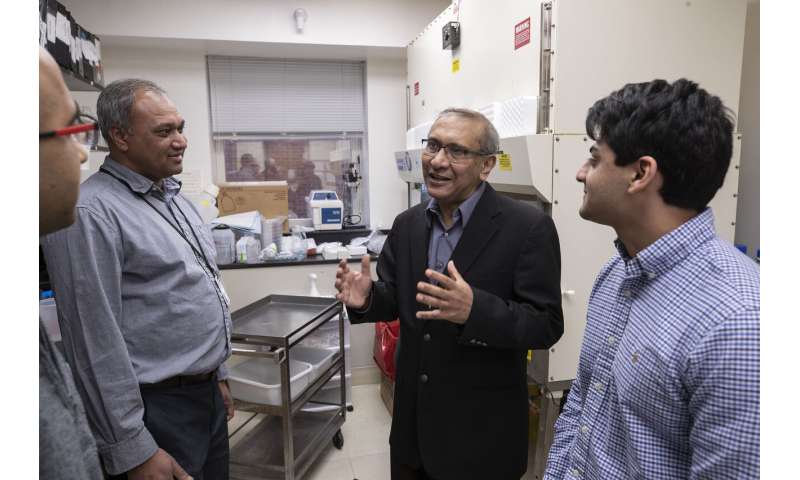
By mining a vast trove of genetic data, researchers at the University of Virginia School of Medicine are enhancing doctors’ ability to treat cancer, predict patient outcomes and determine which treatments will work best for individual patients.
The researchers have identified inherited variations in our genes that affect how well a patient will do after diagnosis and during treatment. With that information in hand, doctors will be able to examine a patient’s genetic makeup to provide truly personalized medicine.
“Oncologists can estimate how a patient will do based on the grade of the tumor, the stage, the age of the patient, the type of tumor, etc. We found [adding a single genetic predictor] can improve our predictive ability by 5% to 10%,” said UVA’s Anindya Dutta, MBBS, Ph.D. “Many of the cancers had multiple inherited genetic change that were predictive of outcome, so if we add those in, instead of a 10% increase we might get a 30% increase in our ability to predict accurately how patients will do with our current therapy. That’s amazing.”
Dutta, the chairman of UVA’s Department of Biochemistry and Molecular Genetics, believes reviewing the inherited genetic make up of a patient can provide similar benefits for predicting outcome and choosing therapy for many, many other conditions, from diabetes to cardiac problems. As such, the approach represents a major step forward in doctors’ efforts to tailor treatments specifically to the individual’s needs and genetic makeup.
Why Some Patients Fare Better Than Others
The research offers answers to questions that have long perplexed doctors. “Every clinician has this experience: Two patients come in with exactly the same cancer—same grade, same stage, received the same treatment. One of them does very well, and the other one doesn’t,” Dutta said. “The assumption has always been that there is something about the two that we didn’t understand, like maybe there are some tumor-specific mutations that one patient had but the other did not. But it occurred to us that with all this genomic data, there is another hypothesis that we could test.”
To determine if genetic differences in the patients could be the answer, Dutta and his colleagues did a deep dive into the Cancer Genome Atlas, an enormous repository of genetic information assembled by the National Institutes of Health’s National Cancer Institute. The researchers sought to correlate inherited genetic variations with patient outcomes.
“This incredibly smart MD, Ph.D. student in the lab, Mr. Ajay Chatrath, decided that this was a perfect time to explore this,” Dutta recalled. “With the help of cloud computing services at UVA, we managed to download all this genomic sequencing data and identify what are known as germline variants—not just tumor-specific mutations but the mutations that were inherited from the parents and are present in all cells of the patient.”
The researchers started small but soon realized how quickly the work could be done and how big the benefits could be. “Once we realized this was a very easy thing to do. we went on to do all 33 cancers and all 10,000 patients, and that took another six months,” Dutta said. “All of this came together beautifully. It was very exciting that every single member in the lab contributed to the analysis.”
Source: Read Full Article
